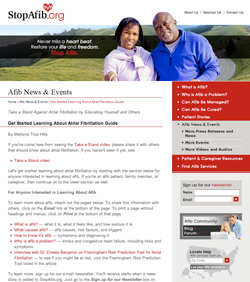
The AFib STROKE Survey (Atrial Fibrillation Survey to Reveal Opinions, Knowledge & Education gaps) was premiered at the FacingAFib launch last week. Now you are invited to a Webinar in which atrial fibrillation experts will share the results of this AFib STROKE Survey. These experts will discuss the common misunderstandings that many patients hold about …
Read More


